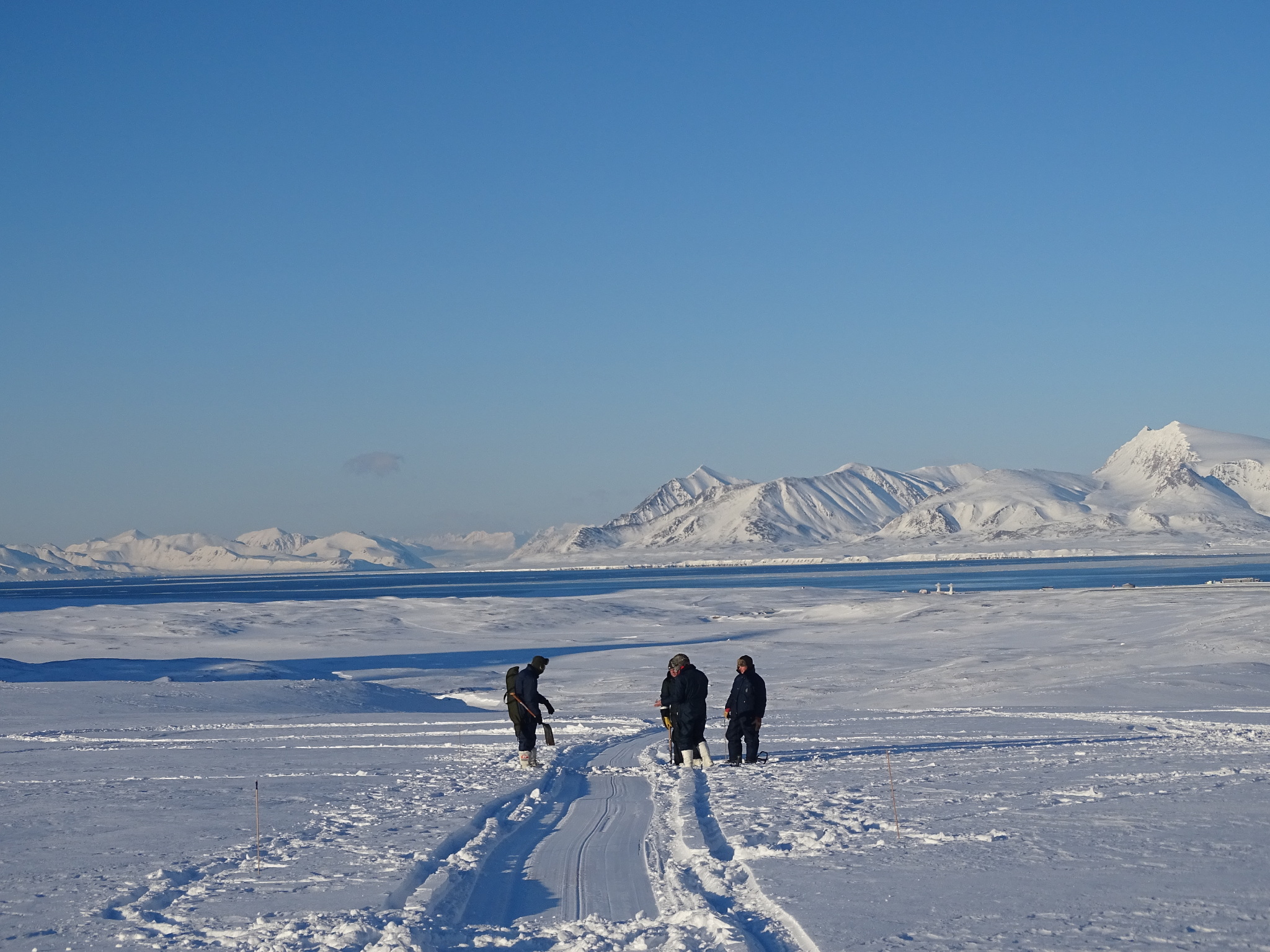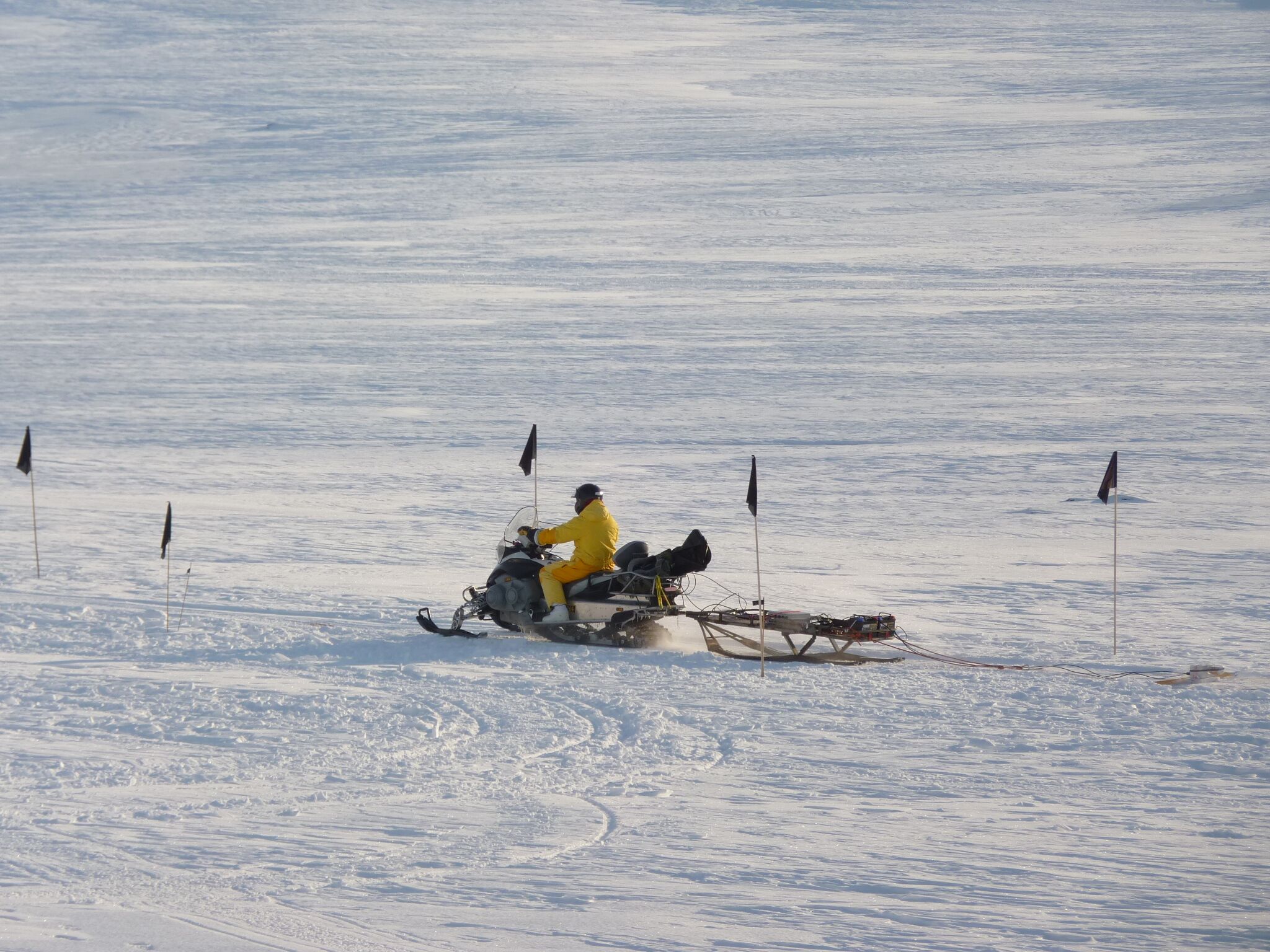Successful testing mission at UK Arctic Research Station
This week scientists from University of Manchester have successfully tested their ‘metal-detecting’ technology at the UK NERC Arctic research station at Ny-Ålesund, Svalbard as part of a wider project to search for the lost meteorites of Antarctica.
The small-scale test mission worked well and will be used for the first ever UK-led meteorite hunting expedition to Antarctica, where the team will seek out the ‘lost’ meteorites of the icy continent. This could provide clues to planetary creation. British Antarctic Survey (BAS) operates the UK station in the Arctic where the technology was tested this month.
Meteorites provide invaluable information about the Solar System’s formation. In particular, iron meteorites, which are formed from the cores of planetesimals (small planets that were later destroyed by further planetary impacts), provide researchers with knowledge of how planets are created. The most fruitful regions on Earth for collecting meteorites are in Antarctica, where dark-coloured non-metallic meteorites show up clearly against the white background of the ice. However, iron-based meteorites are significantly under-represented from such collection missions, as compared with meteorite finds over the rest of the globe.
A University of Manchester multidisciplinary research team, led by the applied mathematician Dr Geoffrey Evatt, believes the missing iron meteorites may lay as a sparsely distributed layer, just a few centimetres beneath the surface of the ice.

They hypothesise that the meteorites are missing as a result of the Sun’s rays penetrating the clear ice and warming the iron-rich rocks more than non-metallic ones. Such warming melts the ice surrounding these meteorites, causing them to sink, and become permanently trapped just below the surface.
The technology used is based upon metal-detection engineering, in which The University of Manchester has particular research strength (such as in optimising airport security scanning, landmine removal, recycling, and non-destructive testing).
The main expedition is likely to take place in early 2020 with a preliminary visit to Antarctica taking place in 2019. It will see the team search unexplored regions of inland Antarctica with logistical and operational support provided by BAS.

Dr Evatt says:
“I’m thrilled our testing at Ny-Ålesund worked. We now have the opportunity to commence on a truly exciting scientific adventure. If successful, our expeditions will help scientists to decode the origins of the Solar System and cement the UK as a leader in meteoritics and planetary science.”
The team will work at three sites on the Antarctic continent, transported by one of BAS’s specialised aircraft, hundreds of kilometres from the nearest research stations. Once there, they will have to contend with freezing temperatures, gale force winds and mountainous terrain.
Henry Burgess, Head of the NERC Arctic Office says:
“The UK’s Arctic Station in Svalbard provides an excellent test bed for cutting-edge research technology. I’m delighted we were able to support the team’s expedition and that it has been such a success.”